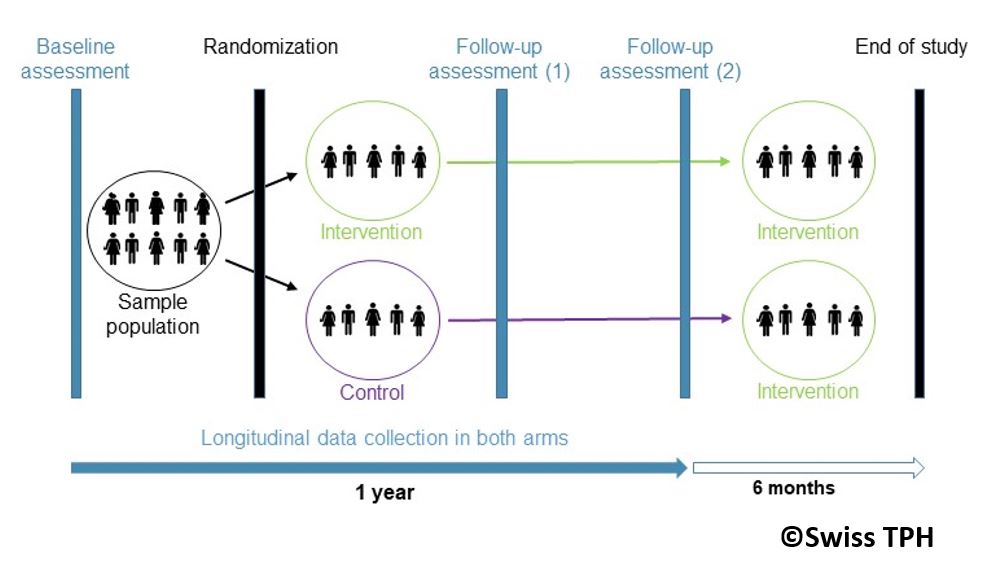Impact Evaluation
Impact evaluation: an overview
To understand the effects of the intervention on water- and hygiene-related health determinants and outcomes, an impact evaluation will be conducted as part of the hands4health project. The evaluation will provide evidence on the benefits and challenges of the hands4health intervention for health care staff, patients, teachers and students in the four project countries.
Data for the evaluation will be collected through a series of tools conducted in health facilities and schools. The selected HCFs and schools will be randomly allocated to an intervention and control group for comparison. The collection of data before and after the intervention is implemented enables the estimation of the effect on health-related indicators among the project beneficiaries.
Modules

The impact evaluation is structured around three research modules.
Module 1
Comprises qualitative research, applying focus group discussions and key informant interviews in HCFs and schools. The goal is to develop a detailed understanding of WASH-related (health) challenges faced by health care staff, patients, teachers and students.
Module 2
A quantitative questionnaire will be employed before and after the intervention, in a cluster randomised factorial trial. The tool will be developed based on the findings of Module 1 and the behavioural change component, and will primarily focus on:
- Assessment of WASH-related health determinants: access to WASH, knowledge about and attitudes towards handwashing for disease prevention, and handwashing practice.
- Well-being indicators: mental health and WASH-related satisfaction of health care staff, patients, teachers, and students.
Module 3
Data will be collected longitudinally for about one year, with the aim to determine the health impact of the interventions. Disease-related absenteeism at HCFs (staff) and schools (teachers and students) will be used as proxy indicator for the impact of the intervention on the transmission of WASH-related infections (e.g., diarrheal diseases).
Why it is important
The results of the impact evaluation will provide a thorough understanding of the efficacy and indicate where further adjustments of the approach are necessary, in order to sustainably improve the health and well-being of vulnerable populations in primary health care facilities and schools. The results will also help to inform the opportunities for improvement and potential for future replicability of the intervention.